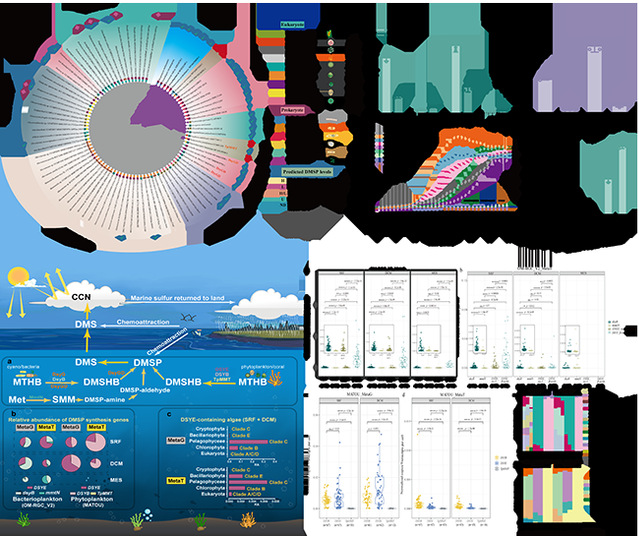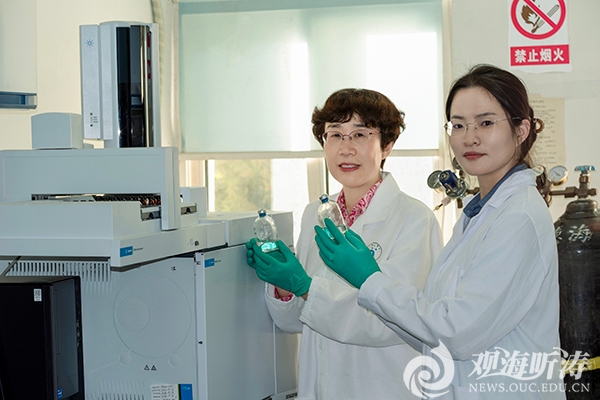On June 11, a research team led by Prof. Zhang Xiaohua from OUC’s College of Marine Life Sciences and the Frontiers Science Center for Deep Ocean Multispheres and Earth System published its latest research findings in Nature Microbiology. The paper, titled “Alternative dimethylsulfoniopropionate biosynthesis enzymes present in diverse and abundant microbes”, reports how to identify a new bi-functional DMSP biosynthesis enzyme, DsyGD, from rhizosphere bacteria of salt marsh plants using molecular biology techniques.DsyGD, which includes the domains DsyG and DsyD, catalyzes the synthesis of DMSP from intermediates in the transamination pathway through methylation and decarboxylation..
Further transcriptome analysis of 678 algae revealed the presence of a protein distantly related to DsyGs, termed DSYE in several algae species. DSYE also exhibits activity in catalyzing the synthesis of DMSP from intermediates in the transamination pathway. Additionally, algae containing DSYE were globally more abundant DMSP producers than those with previously described DMSP synthesis genes. Algal culture experiments confirmed that those algae can synthesize high concentrations of DMSP, despite prior reports not indicating such a capability in these algae.
These newly discovered DMSP-synthesizing algae are widely distributed globally, including Aureococcus anophagefferens, a major planktonic microalga that is responsible for brown tide outbreaks in recent years in China and contributing significantly to the marine ecosystem’s DMSP levels. This work greatly increases the number and diversity of predicted DMSP-producing organisms and highlights the importance of Pelagophyceae and other DSYE-containing algae in global DMSP production and sulfur cycling. The discovery of new DMSP biosynthesis enzymes in marine bacteria and planktonic algae indicates that the role of marine microorganisms in driving the global sulfur cycle and regulating climate change has been seriously underestimated.
These new DMSP synthesis genes can serve as marker genes for DMSP biosynthesis, facilitating the reevaluation of the sources, distribution, and contributions of marine microorganisms to DMSP in the marine environment. This also has major scientific significance for a deeper understanding of the global sulfur cycle and climate change.

